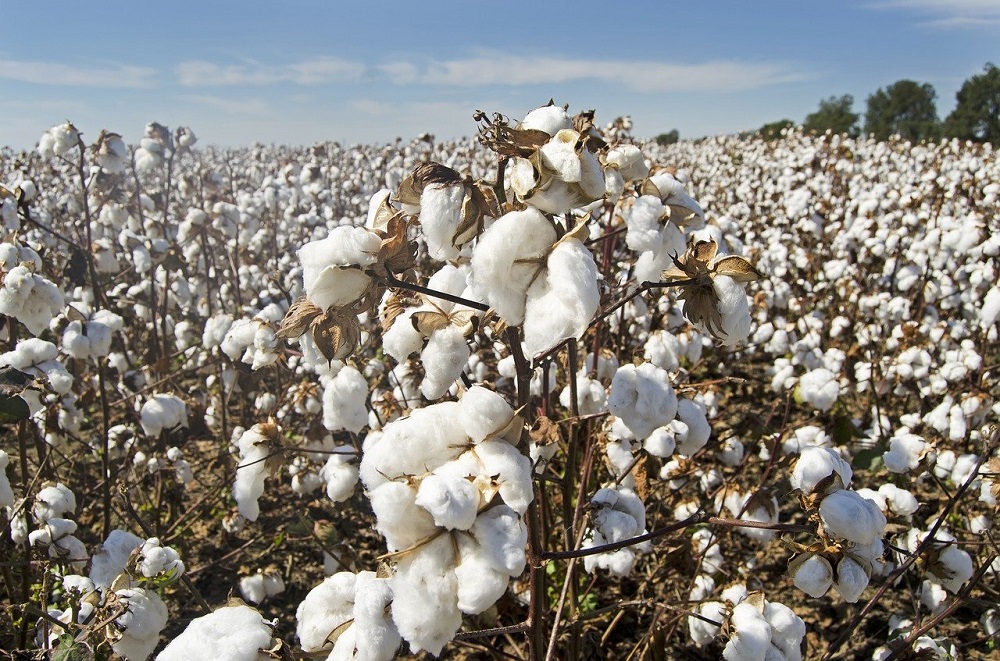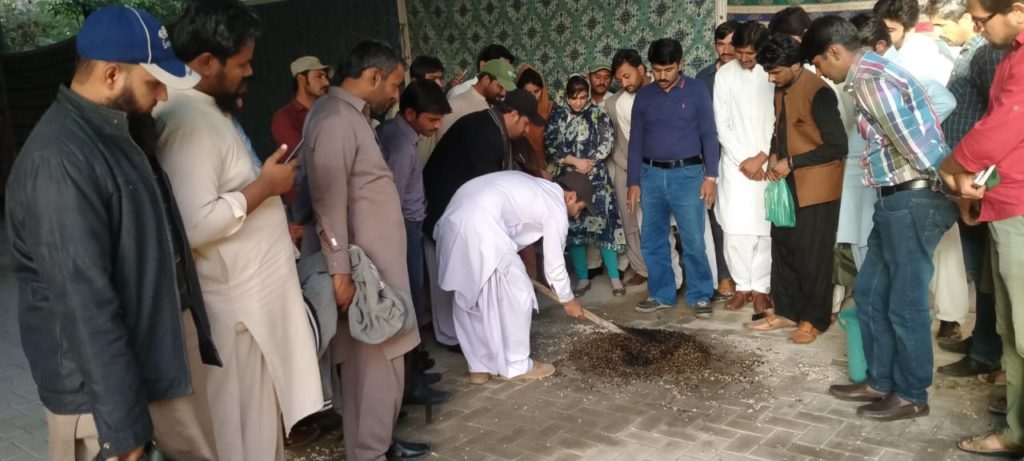
By Rauf Ahmed Khan Laghari, Project Manager, CABI
Cotton is a principal cash crop of Pakistan but unfortunately is attacked by number of pests and diseases. When pests take over the crop, production cost of cotton rises and profit is squeezed thus, there is always a competition between farmer and the pest’s interest.
To save the crop from being attacked by pests, farmers have tried to practice interventions that may protect their crops and ensure a good yield. Seed de-linting is a practice that has various benefits such as when the inoculum of pests and diseases is destroyed, shriveled and dead seeds are identified, seeds get pest free sphere when planted due to the application of acid on its coat. Usually this is done to save the seed from early attack of pest and good germination. When de-linted seeds are planted, the crop gets a good chance to flourish.
To get this practice implemented in the field, the training of field staff (Field Facilitators, PU Managers and Women Trainers) of CABI’s Better Cotton Initiative Project at Mir Pur Khas district was conducted. For this training 5 kilograms of cotton seed, 500 millilitres sulfuric acid (10%), wooden peg, shovel and two buckets of water (each containing 100 litres) were used.

The activity was carried out on a concrete floor that started with setting a pile of cotton seed and putting half quality (250 ml) sulfuric acid on it. Later the pile was quickly pulverated with the help of shovel and remaining sulfuric acid was added.
When the lint had burnt, the seed was rinsed off with tap water for 4-5 times and then de-linted seeds with original black colour became visible. The field staff observed that once the seed became clear, they were able to identify weak, wrinkled and dead seed from the pile. Field staff realized that the lint of cotton hides the original shape and size of seed and as such it becomes difficult to choose good seed.
Later, it was discussed that the de-linting of seed also supports in easy chemical seed treatment with good results. Mr Abdul Rehman, Deputy Director Programmes CABI in Pakistan, viewed that treating cotton seeds (linted) with pesticide is difficult and costly because when seed dressing pesticide is applied, it is absorbed by seeds available on top and pesticide is not mixed well with remaining seeds available down.
Mr Rehman said, “It is better to de-lint the seed first, wash and dry it under shade and then apply seed dressing pesticide on the surface. Hence it is safely assumed that by adopting this method comparatively little quality of pesticide will be used and distribution will be even on all the seeds.”
Additional information
Author
Rauf Ahmed Khan Laghari, Project Manager, CABI
Did you know?
• Cotton is Pakistan’s largest industrial sector. It has played an important role in the economic development of the country and has remained a key livelihood source for thousands of farmers.
• In Pakistan, the industry is losing around 10–15% of its value through poor production, transport and storage practices.
• Better Cotton is a scalable model for cotton that transforms markets and creates tangible impacts at scale; it reduces pesticide and water use, improves yields and ultimately the livelihoods of farmers.
• CABI has trained more than 22,000 farmers and their 38,000 farm workers on 92,220 hectares to produce the 98,402 metric tonnes of cotton lint through the implementation of the Better Cotton Standard System.
See also the news story ‘CABI helps Pakistan’s cotton industry to reduce losses of around $350m a year’
Find out more from the Study Brief ‘Improving the safety and quality of cotton production in Pakistan’
Related News & Blogs
Saying “no” to harmful chemicals in cotton crop production
This is the story of farmer Mr Naveed Ayoub from district Tando Allahyar, Pakistan. He has 10 acres of fertile land where he has cultivated all kinds of vegetables along with cotton crops for many years. He previously felt he had no choice but to use c…
17 November 2021
